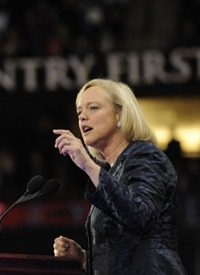
The June 8 primaries were called “Super Tuesday” by some media outlets, but there was no super message being sent by voters nationwide. While some incumbents – particularly Republicans who voted for the TARP bailout in October 2008 – seem headed for retirement, the primaries on June 8 did not reflect the same general anti-incumbent mood of earlier primaries, perhaps in part because many of the races failed to demonstrate clear ideological distinctions and were contests between establishment candidates.
Here is a survey of some of the primary results:
Arkansas Senate: In the biggest race of the evening, incumbent Arkansas Senator Blanche Lincoln survived a Democratic Party primary runoff against Lt. Gov. Bill Halter. The Lincoln race had been seen by many observers as a general measure of anti-incumbency sentiment.
California Governor and Senate: Wealthy women and CEO’s of Fortune 500 companies prevailed in Republican primaries in California statewide offices. Former Hewlet-Packard CEO Carly Fiorina defeated former Congressman Tom Campbell and Tea Party activist Chuck DeVore with 56 percent of the vote in a Republican primary battle to unseat California’s Democratic incumbent Barbara Boxer. Former eBay CEO and co-chair of John McCain 2008 Meg Whitman easily defeated California State Insurance Commissioner Steve Poizner 64-27, in a race to be the GOP nominee for California Governor where both candidates poured tens of millions of their own dollars into the campaign. Whitman will face former Democratic Governor Jerry Brown in the November general election.
One exception to the rule of establishment candidates prevailing is that “Liberty Slate” and Tea Party candidate John Dennis defeated establishment Republican Dana Walsh, 55-45, in a GOP primary to face House Speaker Nancy Pelosi in the general election. Dennis faces an uphill battle toward November, as Pelosi’s district is overwhelmingly Democratic. California’s Eighth Congressional District has voted on average with the Democratic presidential candidate by a 35 percent margin in the last two elections. However, Dennis has a strong non-interventionist foreign policy platform that should play well in the left-leaning district.
Also, incumbent Congressman Bob Inglis of South Carolina’s Fourth Congressional District will face a runoff June 22 after Inglis placed second (39-28 percent) to prosecutor Trey Gowdy in a five-way GOP primary. Inglis had voted for the TARP bailout in October of 2008, and is one of a number of incumbent Republican Representatives and Senators who have had trouble winning their own primaries because of that vote.
Anti-bailout sentiment also ran strong in the South Carolina Republican gubernatorial primary. Nikki Haley will face a runoff for the GOP nod to replace outgoing Gov. Mark Sanford against pro-bailout voting Congressmen Gresham Barrett. Haley nearly won the majority needed to avoid a runoff, and polled first in the four-way GOP primary. Haley was vigorously supported by Tea Party activists, endorsed by Sarah Palin, and frequently emphasized Barrett’s vote for the TARP bill during primary campaign stops.
And in the only final congressional election of the evening, Republicans kept a House seat in a Georgia special election. Establishment Republican Tom Graves will fill the congressional seat being vacated by Republican Nathan Deal, who is running for Georgia Governor. Graves defeated ideologically similar Republican Lee Hawkins in the special election, 59-41.
Photo of former eBay CEO and co-chair of John McCain 2008 Meg Whitman: AP Images



